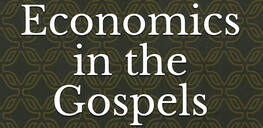VIDEO COURSE
A 10-class treatment of the Economics in the Gospels study. It tunes down the theological in favor of focusing an economics and historical lens on the accounts of Jesus as written in the Gospels. It brings Jesus and his followers to life in the Judeo-Roman world in which they lived while pointing out the relevance to our world today.
Class 1 - Treasure/Gold/Money
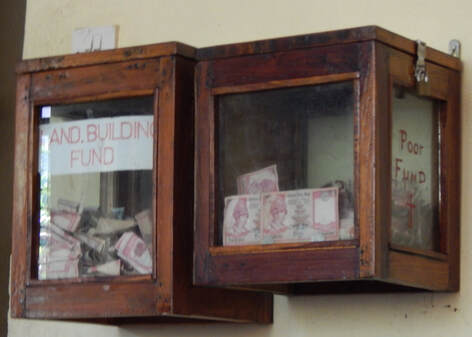
A trillion here, a trillion there, before long that adds up to real money! That is a not too tongue-in-cheek assessment of our current economic situation. Money was similarly front and center in Roman times and society too.
Their interest in controlling their money supply had developed over at least 700 years by Jesus’s time. Add 2,000 years and you have a Federal Reserve and other central banks manipulating and trying to keep our worldwide economic system on an even keel. The Gospel writers do not reference economists, monetary nor fiscal policies, but they had coins...
For more click here to go to the blog post. To view the video click here.
Their interest in controlling their money supply had developed over at least 700 years by Jesus’s time. Add 2,000 years and you have a Federal Reserve and other central banks manipulating and trying to keep our worldwide economic system on an even keel. The Gospel writers do not reference economists, monetary nor fiscal policies, but they had coins...
For more click here to go to the blog post. To view the video click here.
Class 2 - Kingdoms/Labor(Part 1)

Even though the chapter on Kingdoms is one of the shortest it also has the most mentions (126). Most of these are of the heavenly variety, e.g. the “Kingdom of Heaven”; but there are several mentions of actual kingdoms, which is what we are mostly interested in for our economics study of that ancient world of Christ’s. Interestingly, Jesus seemed to have only one system in mind: Kingdoms - in heaven of course. And once again we don’t see a very promising capitalist in Him.
Many jobs are seen in the Gospels (50+). Many are iconic jobs like: fishermen, carpenter, and shepherd, all of which instantly bring to mind stories and characters from the Gospels. For our purposes these aren’t of just passing interest but convey a great deal about the economy in Matthew, Mark, Luke, and John’s world.
For more click here to go to the blog post. To view the video click here.
Many jobs are seen in the Gospels (50+). Many are iconic jobs like: fishermen, carpenter, and shepherd, all of which instantly bring to mind stories and characters from the Gospels. For our purposes these aren’t of just passing interest but convey a great deal about the economy in Matthew, Mark, Luke, and John’s world.
For more click here to go to the blog post. To view the video click here.
Class 3 - Labor (Part 2)
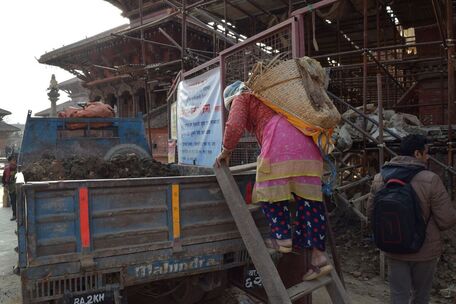
From servants to flute players, crooks to bankers, farmers to spies, there is a wide spectrum of jobs in the Gospels. Then there are the slaves…
This a particularly challenging part of the study because we have to confront slavery, a ubiquitous form of labor in Jesus’s day in the Roman empire. It is particularly difficult because it is taken as a given and a theological or historical point of view is complicated, at best. Especially coming from a WASP man. You can see for yourself how it goes as this installment to the video course will be up and available for all to see over the next week before moving into the course collection with the others.
For more click here to go to the blog post. To view the video click here.
This a particularly challenging part of the study because we have to confront slavery, a ubiquitous form of labor in Jesus’s day in the Roman empire. It is particularly difficult because it is taken as a given and a theological or historical point of view is complicated, at best. Especially coming from a WASP man. You can see for yourself how it goes as this installment to the video course will be up and available for all to see over the next week before moving into the course collection with the others.
For more click here to go to the blog post. To view the video click here.
Class 4 - Management

Jesus a manager? It seems a bit presumptuous to think that we can relate to such a divine figure in such a human way, but that’s what the Trinity invites us to do - remember that Jesus was an actual human being. As such, we can look upon Him in that context, which is what the Economics in the Gospels study is all about.
We see managers throughout the Gospels and even Jesus acting as one. He is definitely the boss of his group, the disciples, and what was becoming a significant movement: His flock. They used money and paid for things. They don’t appear to depend on miracles to get their daily bread, and aside from the four-drachma coin, didn’t create cash from thin air. So, let’s assume they organized their affairs to travel, eat, etc., like most anybody else.
For more click here to go to the blog post. To view the video click here.
We see managers throughout the Gospels and even Jesus acting as one. He is definitely the boss of his group, the disciples, and what was becoming a significant movement: His flock. They used money and paid for things. They don’t appear to depend on miracles to get their daily bread, and aside from the four-drachma coin, didn’t create cash from thin air. So, let’s assume they organized their affairs to travel, eat, etc., like most anybody else.
For more click here to go to the blog post. To view the video click here.
Class 5 - Commerce & Banking/Forgiveness
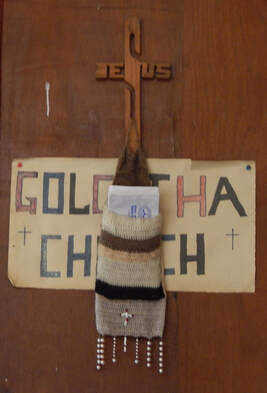
There are some fascinating mentions and analogies, as well as key parables, that get at key economic activities, at least peripherally. Transactions are the life blood of an economy. The most basic of economic activities is the act of buying and selling. Without credit and debt the modern economic system would be unrecognizable. Not surprisingly, borrowing and lending are well represented in the Gospels as well. The Gospels’ texts would put the world economic system on its head if followed to the letter. Lend and expect nothing back? Give to the one who asks and do not reject them? Not likely.
For more click here to go to the blog post. To view the video click here.
For more click here to go to the blog post. To view the video click here.
Class 6 - Dwellings and Other Structures
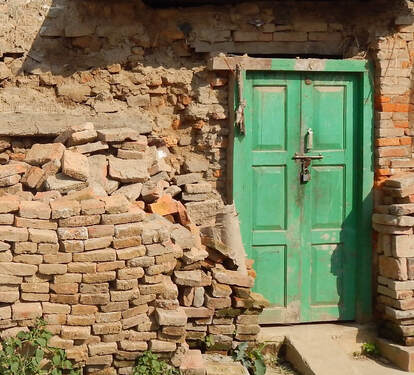
The Gospels are full of houses. They are mentioned seemingly at all times and in all books. The disciples had them. Jesus’ friends had them, as did his enemies. Everyone but Jesus himself seemed to have one.
From an economics standpoint it would seem pretty obvious that homebuilding, like today, was a cornerstone of economic activity. As is seen in the chapters on labor and produced goods it is also apparent that tools and jobs were abundant in the home building sector, if you will.
In addition to housing, there was a lot of other building going on back in the day of the Gospels. Synagogues, tombs, prisons, barns – there’s quite a list.
For more click here to go to the blog post. To view the video click here.
From an economics standpoint it would seem pretty obvious that homebuilding, like today, was a cornerstone of economic activity. As is seen in the chapters on labor and produced goods it is also apparent that tools and jobs were abundant in the home building sector, if you will.
In addition to housing, there was a lot of other building going on back in the day of the Gospels. Synagogues, tombs, prisons, barns – there’s quite a list.
For more click here to go to the blog post. To view the video click here.
Class 7 - Boats, Manufactured Goods, Arms and Sharp Objects
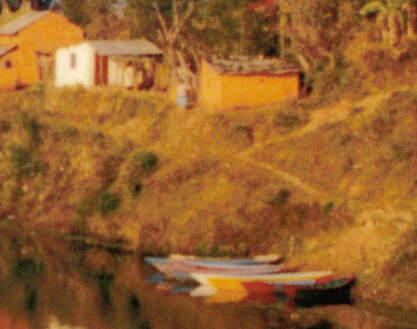
There are many references to boats in the Gospels. From those used by disciple-fishermen, to those used for transportation, boats are mentioned throughout. In fact, there are no other modes of transportation mentioned in the Gospels, at least not that Jesus or his followers used – aside from their feet, of course.
The Gospels also include mention of a significant number of goods produced in what one might term the light manufacturing of its day. These items represent jobs and businesses just like today and there’s a wide variety, from flasks to nails, thrones to dice, even stretchers.
For more click here to go to the blog post. To view the video click here.
The Gospels also include mention of a significant number of goods produced in what one might term the light manufacturing of its day. These items represent jobs and businesses just like today and there’s a wide variety, from flasks to nails, thrones to dice, even stretchers.
For more click here to go to the blog post. To view the video click here.
Class 8 - Feasts, Food & Agriculture, Bread & Wine
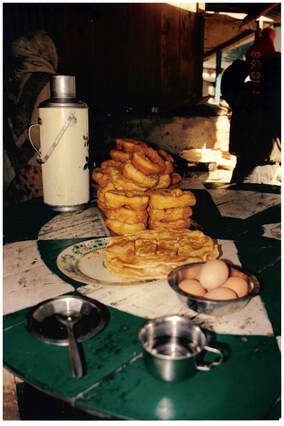
An awful lot of food is found in the Gospels. Lots of bread especially and mention of the raw materials needed to produce it. In fact, we can see a thriving agricultural component that includes the fields, yeast, wheat, eggs, etc. Same for wine with mentions of vineyards, winepresses, etc. We also see big feasts and extravagant weddings where food have been front and center, not unlike today. Throw in fish and figs and we see a pretty good diet with no mention of famine or much hunger, aside from that of followers who traveled to see Jesus preach. Then we see the most poignant instances of food in the Gospels where we see Him feeding thousands from a few fish and loaves of bread.
The most fundamental factor of a civilization’s economy is arguably its food production and the ability to organize themselves, their land, and other required resources. To produce food in abundance fields, sowers, seed, soil, fertilizer, beasts of burden, etc., are needed. Taken together with the jobs, and the agricultural related structures mentioned previously, we see that agriculture may well be considered the largest component of the Gospel economy.
For more click here to go to the blog post. To view the video click here.
The most fundamental factor of a civilization’s economy is arguably its food production and the ability to organize themselves, their land, and other required resources. To produce food in abundance fields, sowers, seed, soil, fertilizer, beasts of burden, etc., are needed. Taken together with the jobs, and the agricultural related structures mentioned previously, we see that agriculture may well be considered the largest component of the Gospel economy.
For more click here to go to the blog post. To view the video click here.
Class 9 - Offering & Gifts, Taxes, Rich & Poor, Garments & Textiles
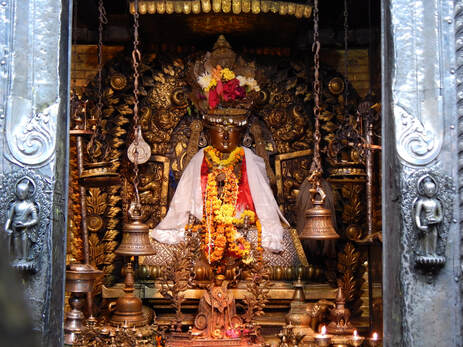
The Gospel accounts start off with gifts to the baby and continue on with promises of gifts from God to his children.
And what you give will be the measure received.
Taxes were collected at the temple. Though it would appear that Jesus might feel he is exempt…
For more click here to go to the blog post. To view the video click here.
And what you give will be the measure received.
Taxes were collected at the temple. Though it would appear that Jesus might feel he is exempt…
For more click here to go to the blog post. To view the video click here.
Class 10 - Peace/War/Takeaways

The economy we see in the Gospels seems familiar in many ways. Perhaps that is why the narrative, the stories, the people, the situations, the images seem relevant through the ages. It’s easier in some ways to notice the things that aren’t there. But what we see is that much of what we take for granted was there, albeit in more simple states: Agriculture? Check. Housing? Check. Lawyers? Of course. Lamps, musical instruments, tables, chairs, curtains, garments, jars, spices, servants, linens, coins, plenty of bread, wine, etc. are all in there.
For more click here to go to the blog post. To view the video click here.
For more click here to go to the blog post. To view the video click here.
For a sample syllabus for the course click here.

About the Instructor
Steve Richards is author of the Economics in the Gospels study and producer of the video series. He's also the course instructor and Managing Director of TheoEco. For more about Steve click here.
Steve Richards is author of the Economics in the Gospels study and producer of the video series. He's also the course instructor and Managing Director of TheoEco. For more about Steve click here.

